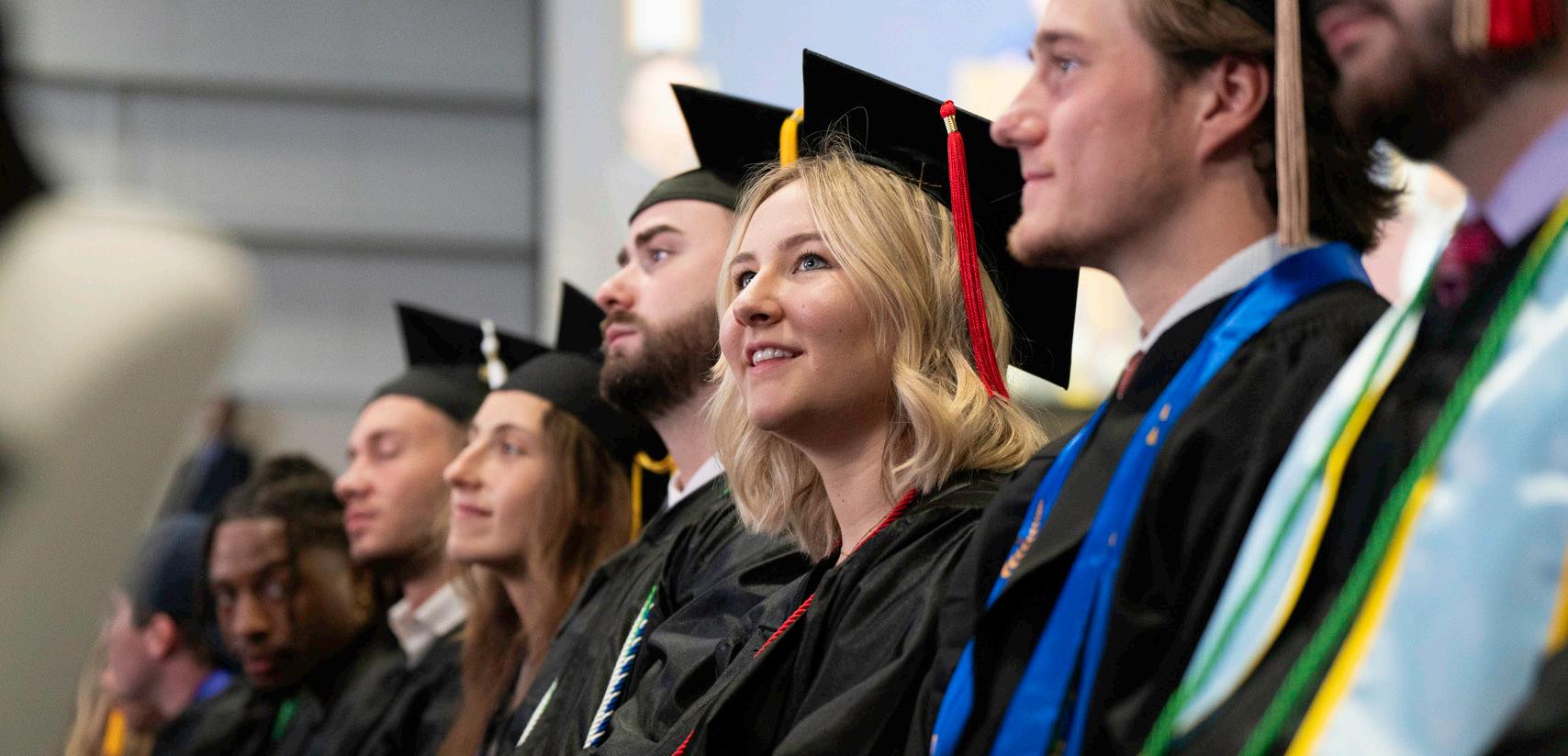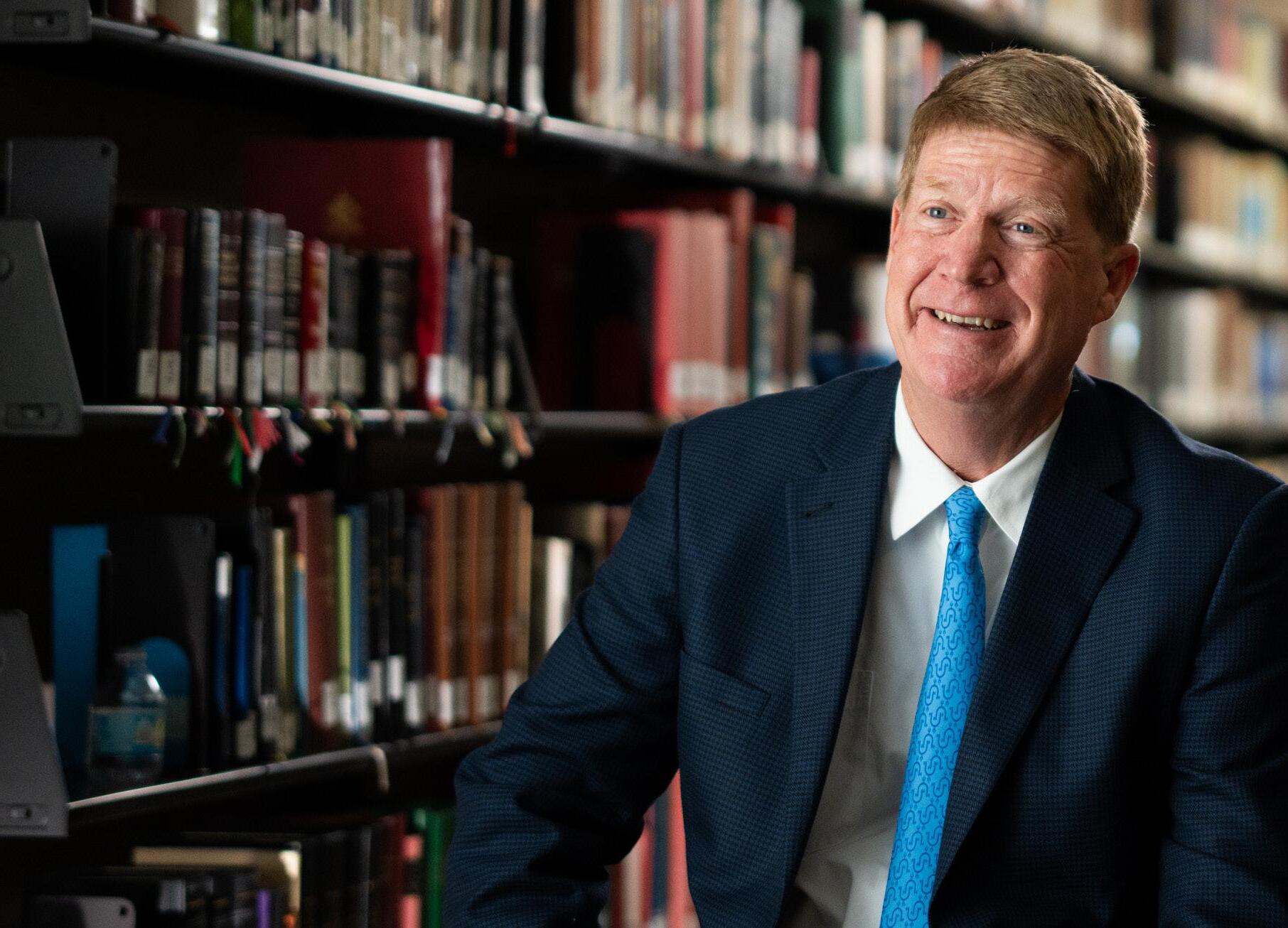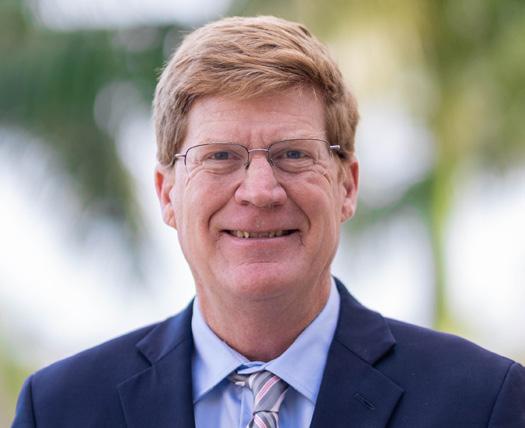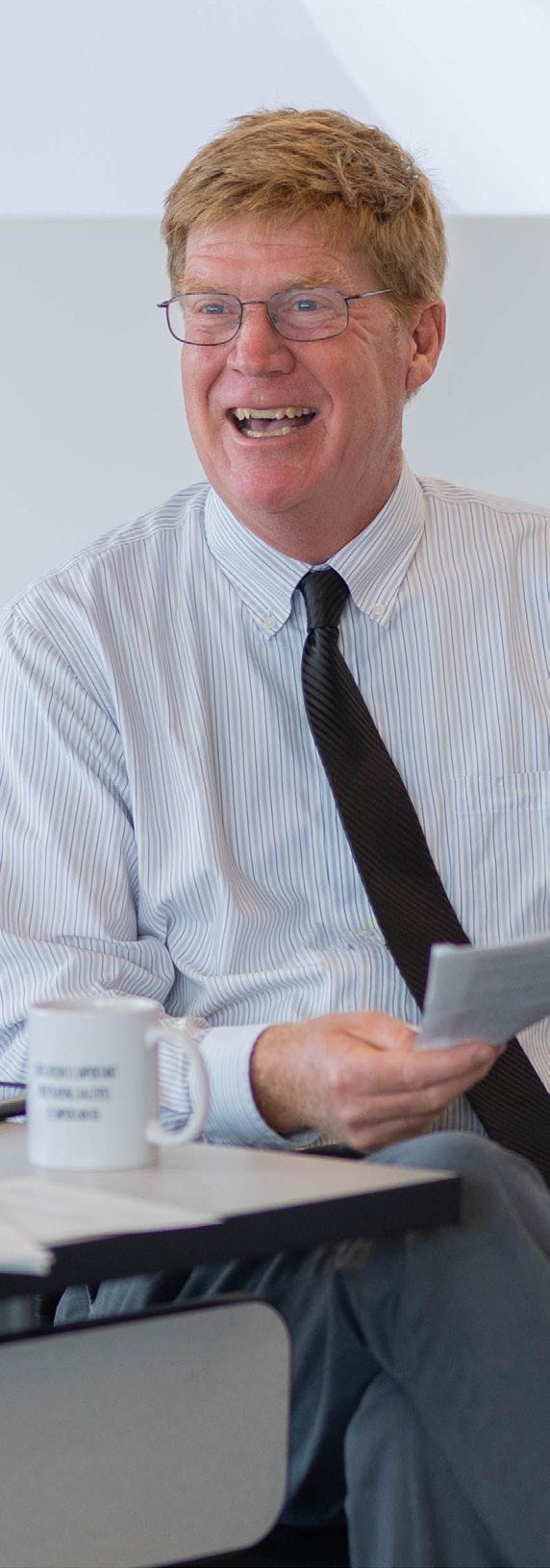

Higher Education Headwinds and the Holy Spirit
Daniel Guernsey, Ed.D.
Higher education in general is facing some stiff headwinds and rougher seas lie ahead; but there is hope and opportunity for faithful Catholic colleges and universities.
Three cultural pressure systems have combined in force against colleges and universities.
The first is demographic. This year, the number of high school graduates within the U.S. has peaked, and we now anticipate a 17-year decline (at least) of 13% or more. This means that after this year, there will be less and less high school seniors, because there are less children overall. The falling birthrate will be hard to turn around as fewer young people
are entering into relationships, fewer are getting married, and, even if marrying, fewer are having children.
The second is doubt about the value of higher education. There is a real concern about the benefit of higher education in terms of forming flourishing human beings and the cost efficiency in delivering marketable skills. Many now believe colleges to be monolithic, politically charged, progressive echo chambers which have squandered any pretense they once had to advancing truth, freedom, and enlightenment. The 2024 American College Student Freedom report suggests 40% of conservative-leaning
students do not feel comfortable sharing controversial opinions in their classes. According to Gallup in 2024 over the last few years, there has been a 21% drop in those who have “a great deal” or “quite a lot” of confidence in higher education, with only 19% of Republicans thinking so.
Additionally, there is a loss of trust in the economic value of getting a degree. Due to a 37% rise in tuition over the last ten years—and considering loss of income and student loan interest—investing in a bachelor of arts degree could now cost over $500,000 according to a 2025 Education Data report. A Pew 2024 research report reveals 29% think college is not worth it, 47% say it is worth it only if no loans are needed, and only 22% are “all in,” saying it is worth it even with loans.
The third cultural pressure system is artificial intelligence (AI). AI has severely hampered the ability to assess easily faked student learning. (I wonder if it cannot also stand for academic impostering.) There is an irony in that as students furtively replace themselves with AI in college assignments, employers will replace them with AI in the work-world—as such students have nothing more to add. Higher education is in a realm of untold commodification and cynicism about knowledge and its value.
However, the fact that knowledge has been abused, faked, and manipulated does not make it less valuable;
it makes it more rare and therefore more valuable. This creates an opportunity faithful Catholic colleges were made for.
First, Catholic colleges have some positive demographics in their favor. A recent study by Barna suggests a decades long drop in U.S. Christians has stabilized. Additionally, a new generation of priests are taking over parishes and schools and have had personal experience with Catholic education. Of those ordained in 2023, according to The Pillar, 43% attended Catholic school and 11% had been homeschooled (compare to the general Catholic population of 16% in Catholic school and 3.7% who homeschool). Additionally, (as reported in a 2023 study by the Catholic University of America), with 80% ordained in the last five years identifying as “conservative/orthodox” or “very conservative/ orthodox," and none as “very progressive,” the chances of finding faithful Catholic schools in dioceses will likely increase, and so too their graduates seeking faithful Catholic colleges.
Another hopeful demographic is that tax-supported private school choice programs are expanding, now in 36 of 50 states. Growing and free or affordable Catholic schools should increase enrollment in Catholic colleges. Additional students may result from the rapid growth of Catholic classical
schools. The Institute for Catholic Liberal Education (ICLE) has grown 48% in ten years to 147 schools, and the Chesterton schools’ network is nearing 70. There are estimated to be over 60,000 Catholic students in classical education. Finally, according to the National Center for Educational Statistics, there are about 444,000 Catholic homeschoolers today, with numbers expected to increase.
In facing the second headwind, faithful Catholic colleges have the antidote to the current doubt and cynicism regarding the transcendent and temporal value of education. They recognize, as St. John Henry Cardinal Newman did, that all truth is unified through its source and end in God, and that faith and reason coming from the same God are not only never in contradiction, but in their dual and complementary roles in fact provide the only adequate apprehension of reality. The cynicism of relativism and despair of materialism on other campuses have no home in Catholic education. Faithful Catholic colleges have a commitment to objective truth, which keeps them humble, happy, and intellectually honest.
There is real-life value both in individual human flourishing and in future value to employers to those who have common sense, grounding, and docility to truth. A human being fully
alive, is not only “the glory of God” as St. Irenaeus observes, but by lesser extension is also a valuable citizen and employee, able to raise the culture, conversation, and insight to the surrounding community or workplace. The human being fully alive as a natural and supernatural powerhouse can never be fully replaced in the world or workplace by “artificial intelligence.”
This leads to the third headwind of AI in college and beyond. Buoyed by Catholic anthropology and vision of reality, Catholic colleges have the insight and the duty to ensure their students do not sell or transfer their minds or souls to a world of artificial intelligence. Far from being a death knell to faithful Catholic colleges, AI can serve as an intellectual “call to arms”: a call to develop, protect, and advance the deeply human and the supernatural elements in us that AI cannot satisfy or replace.
Faithful Catholic colleges in their anthropology and pedagogy know there is no AI shortcut to education and wisdom. The human mind cannot use AI or fakery to simply leapfrog into higher ordered thinking skills. The ability to abstract and rise above simple facts and synthesize and evaluate the realities and ideas surrounding one is a hardwon skill that takes years of modeling and guided effort from caring and
thoughtful humans. It requires memorizing, ordering, and evaluating facts across a wide body of integrated subjects. Such a process involves years of memorization, skill development, argumentation, and contemplation across various academic disciplines. Fellowship makes the hardship of this very human task easier and more productive for students. AI tutors cannot do the “dirty work” of serving up facts so that the isolated, untrained, and unburdened mind is somehow then freed to do the “really human stuff”: the stuff of wisdom, eloquence, and insight that is indicative of well-ordered thinking and the product of human conversation.
Such intellectual virtue requires the student to have the personal ability to abstract and evaluate knowledge in community, with a deep understanding of the people
around them (including through history those who have come before them) and rich contemplative lives of faith. Such are “the glories of man fully alive.” The future and joy of humanity is in God and each other, not AI.
Finally, faithful Catholic colleges have their own available tailwind: the gift of the Holy Spirit, who “when the Spirit of truth comes, he will guide you into all the truth,” (John 16:13). The world needs Christ, and Christ through His Church has commissioned her colleges, especially as articulated in Vatican II, to make available to the world a “Christian mind in the furtherance of culture” and form “men truly outstanding in their training, ready to undertake weighty responsibilities in society and witness to the faith in the world.” The course is set, the breeze blows.

The Foundations and Future of Catholic Education

Daniel Guernsey, Ed.D.
Dr. Daniel Guernsey has more than 25 years’ experience in Catholic education—16 of them as a Catholic school principal and 9 years in higher education as an associate professor and administrator. He directs AMU’s Master of Education in Catholic Educational Leadership. He is a senior fellow with the Cardinal Newman Society and board president of the National Association of Private Catholic and Independent Schools. He and his wife Lisa have 6 children and 13 grandchildren.

The Wisdom Papers is a series of relevant reflections on contemporary conversations from the faculty of Ave Maria University.
EDITOR
Sarah Chichester
ART DIRECTOR
Balbina O’Brien
MANAGING EDITOR
Susan Gallagher STAFF ASSISTANT
Katherine Arend
